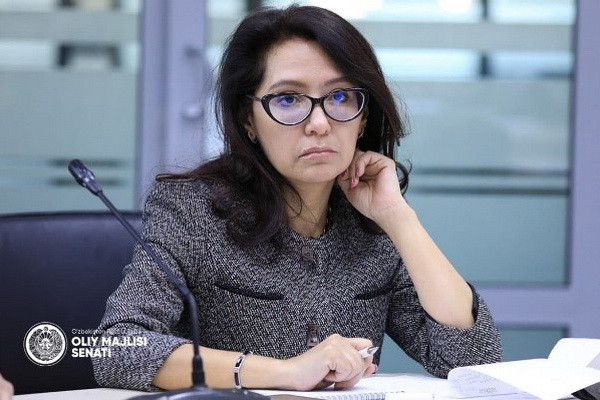
Afghanistan: Ensuring Girls' Access to School Education
Tashkent, Uzbekistan (UzDaily.com) -- One of the important issues to be discussed at the upcoming international conference "Afghanistan: Security and Economic Development" on 25-26 July 2022 is the respect for women's rights and ensuring the access of girls to school education.
Gender equality is a global priority for all countries and is inextricably linked to advancing the right to education and supporting the achievement of the Sustainable Development Goals, namely “ensuring inclusive and equitable quality education and promoting lifelong learning opportunities for all” (SDG 4) and “achieving gender equality and the empowerment of all women and girls” (SDG 5).
Many barriers, such as poverty, geographic isolation, minority status, disability, early marriage and pregnancy, gender-based violence and traditional attitudes towards the status and role of women, prevent women and girls from fully enjoying their right to education and economic and public engagement in their countries.
Education catalyzes a range of economic and social benefits that go far beyond individual transformation and benefit families, communities, and the entire country. Providing girls and young women with access to education is one of the most effective ways to advance gender equality and eradicate poverty in Afghanistan. Today, the female population of the country is more than 20 million or 48.3% and this is the most vulnerable group.
Approximately 8 million children in Afghanistan are in need of education as of April 2022 in primary (5.8 million and 2.3 million of them girls) and secondary education (2.9 million). There were about 130,000 teachers in primary and secondary education, of which 41% were women (about 53,000) . Children's access to education has already been hampered by the COVID-19 pandemic, with 40% and 43% of households reporting school closures due to COVID-19 for girls and boys, respectively. The suspension of funding for the development of public system, the situation with sanctions contributed to deepening the problem, including the resolution of the Ministry of Education of the Afghanistan interim government dated March 23, 2020 to close the secondary school for girls “until further notice”, which affected 1.1 girls in the country.
The situation with the access of girls to education remains uncertain, with adolescent girls not attending school pending changes in policy on this issue. In addition, the new Ministry of Education has indicated that it can only pay the wages of 30% of the current workforce, which highlights the precarious state of public infrastructure without development funding.
Employment opportunities are shrinking and the number of vulnerable populations with acute humanitarian needs is increasing. Accordingly, the priority of education is reduced, the risk of negative coping mechanisms increases, including child labor, early marriage and other forms of exploitation and abuse, and above all, women and girls are at risk. Although primary education continues for the most part for both girls and boys, if the position of the interim government remains unchanged on this issue, problems with access and quality at this level are inevitable, as well as gaps in gender parity.
Afghanistan is currently the only country in the world where girls are denied the right to education. Women and girls must have access to education at all levels, they must go back to school. Afghanistan needs to strengthen relevant structures and continue its efforts to create a more sustainable and equitable education system.
The International Conference in Tashkent will offer a platform to discuss important aspects of collaboration between governments, donors and the humanitarian community of the region for liaising with the Afghanistan interim government in the humanitarian field and, above all, human-rights-based education.
A number of recommendations may include: developing programs to increase the number of female teachers and scale up primary education through the rehabilitation and construction of schools, improving the quality and accessibility of education for both boys and girls; use of short-term/temporary alternative tools – distance learning, mobile and home-based learning or community-based learning and other possible approaches. Although there should be no alternatives to access to education, in particular case in secondary school, by continuing to educate children, including girls, Afghanistan can provide a brighter future for them, their families, communities and the country.
Comments by Ms. Nazokat Kasymova, Doctor of Political Sciences, Professor of the Department for Political History of the Eastern Countries and International Relations of the Tashkent State University of Oriental Studies